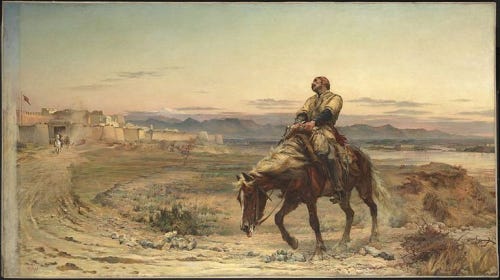No, The US Military Occupation of Afghanistan did NOT Improve Women's Lives there

Image: Public domain.
Before your friends start trying to tell you how awful it is that the US military is pulling out of Afghanistan, how awful especially for the women, whose lives were made so much better by the US occupation - please read this. I wrote it eleven years ago, when the occupiers had already been there nearly nine years too long. From the article:
."..somebody might want to think hard about the human consequences of American withdrawal. What happens to the Afghan women who removed their burqas in the late fall of 2001, or the girls who enrolled in government schools?"
Sadly, it is very likely that they will continue to face abuse, disfiguring attacks and even death for their acts of simple courage – just as they do today under US occupation. Indeed, there is good reason to believe that these kinds of attacks and the overall quality of life for Afghan women have only grown worse with the US presence.
The Afghan Independent Human Rights Commission reported in March of 2008 that violence against women had nearly doubled from the previous year, and a 2009 Human Rights Watch report concludes that "(w)hereas the trend had clearly been positive for women's rights from 2001–2005, the trend is now negative in many areas." Other reports (including one from Amnesty International in May of 2005) call the first part of that statement into question:
Says Ann Jones, journalist and author of Kabul in Winter, "For most Afghan women, life has stayed the same. And for a great number, life has gotten much worse."
Sonali Kolhatkar, co-director of the Afghan Women's Mission, says "the attacks against women both external and within the family have gone up. Domestic violence has increased. (The current) judiciary is imprisoning more women than ever before in Afghanistan. And they are imprisoning them for running away from their homes, for refusing to marry the man that their family picked for them, for even being a victim of rape."
Anand Gopal, Afghanistan correspondent for the Wall Street Journal, says "The situation for women in the Pashtun area is actually worse than it was during the Taliban time. …(U)nder the Taliban, women were kept in burqas and in their homes, away from education. Today, the same situation persists. They're kept in burqas, in homes, away from education, but on top of that they are also living in a war zone."
"Five years after the fall of the Taliban, and the liberation of women hailed by Laura Bush and Cherie Blair, thanks to the US and British invasion," wrote The Independent's Kim Sengupta in November of 2006, "such has been the alarming rise in suicide that a conference was held on the problem in the Afghan capital just a few days ago."
The US military has made life worse for women in Afghanistan, not better. Is it possible that a US exit will result in their lives becoming even worse than they are now, as Bret Stephens and Time magazine fear? Of course it is possible. But what is certain is that the occupation has had a harmful effect on the lives of the vast majority of Afghan civilians – not a positive one as the promoters of war as a vehicle for social change assert. Also indisputable is that the Taliban has grown in strength since the occupation began, and it only continues to do so. This should come as no surprise to anyone who has looked closely at the motives for terrorism. Even US intelligence agencies have acknowledged that the US occupation of Iraq has strengthened Islamic fundamentalism and ."..made the overall terrorism problem worse."
You can read the whole thing (and I think you should) here.






